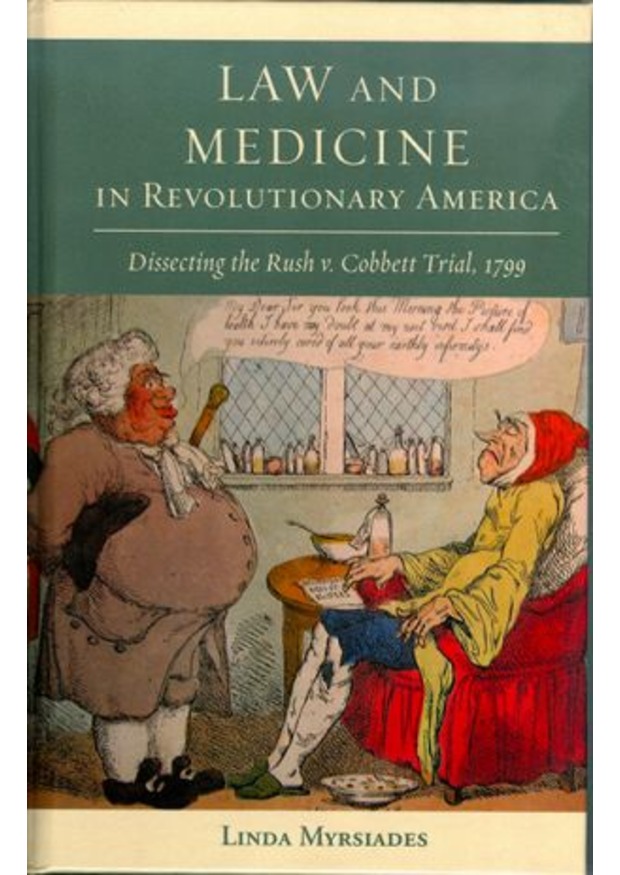Dissecting the Rush v. Cobbett Trial, 1799
Law and Medicine in Revolutionary America: Dissecting the Rush v. Cobbett Trial, 1799 offers the first deep analysis of the most important libel trial in post-revoutionary America and an approach to understanding a much-studied revolutionary figure, Benjamin Rush, in a new light as a legal subject. This libel trial faced off the new nation's most prestigious physician-patriot, Benjamin Rush, against its most popular journalist, William Cobbett, the editor of Porcupine's Gazette. Studied by means of a rare and substantial surviving transcript, the trial features six litigating counsel whose narrative of events and roles provides a unique view of how the revolutionary generation saw itself and the legacy it wished to leave to its progeny. The trial is structured by assaults against medical bleeding and its premier practitioner in yellow fever epidemics of the 1790s in Philadelphia, on the one hand, and castigates the licentiousness of the press in the nation's then-capital city, on the other. As it does so, it exemplifies the much-derided litigiousness of the new nation and the threat of sedition that characterized the development of political parties and the partisan press in late eighteenth-century America.
Reviews:
Law and Medicine in Revolutionary America offers a brilliant reading of a crucial, if largely overlooked, event in early American law and medicine. Myrsiades’s deft handling of sources and her trenchant analysis of the 1799 Rush-Cobbett trial offer new insight into freedom of the press, the medical marketplace, the legal system, and the politics of the early republic.
--Marcia D. Nichols, University of Minnesota Rochester
In Law and Medicine in Revolutionary America, Linda Myrsiades links Americanism with professionalism and converts medical and legal history into a narrative of the nation. Marshalling a fascinating array of primary sources that includes trial records, press coverage, and personal correspondence, Myrsiades meticulously dissects the 1799 libel trial of Rush v Cobbett. By showing how its legal anatomy embodied the most pressing political and ethical questions of the emerging nation, Myrsiades makes a significant contribution to the study of medicine, law, and the humanities that will appeal to readers across a broad range of disciplines.
--Cathrine O. Frank, University of New England













